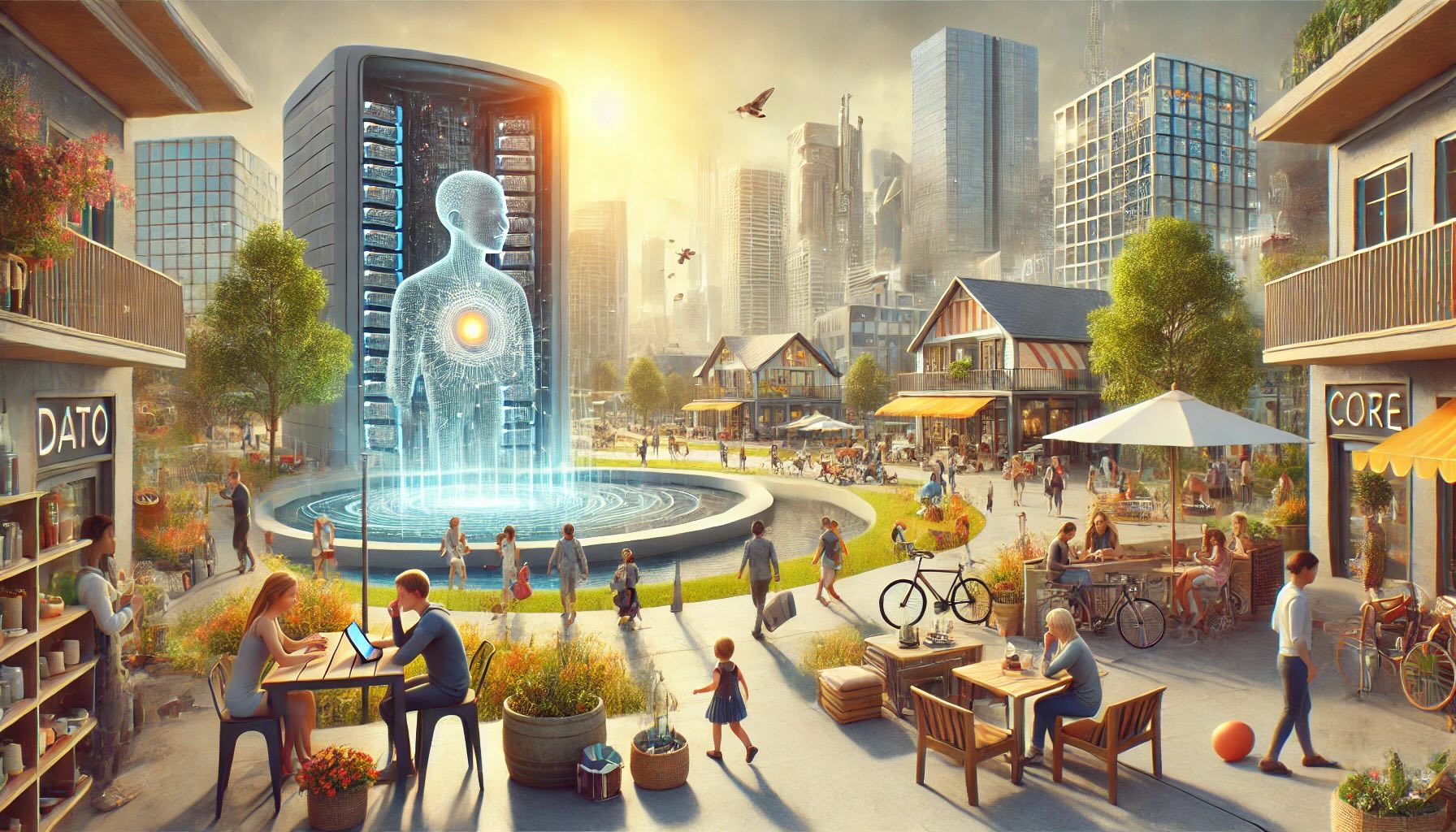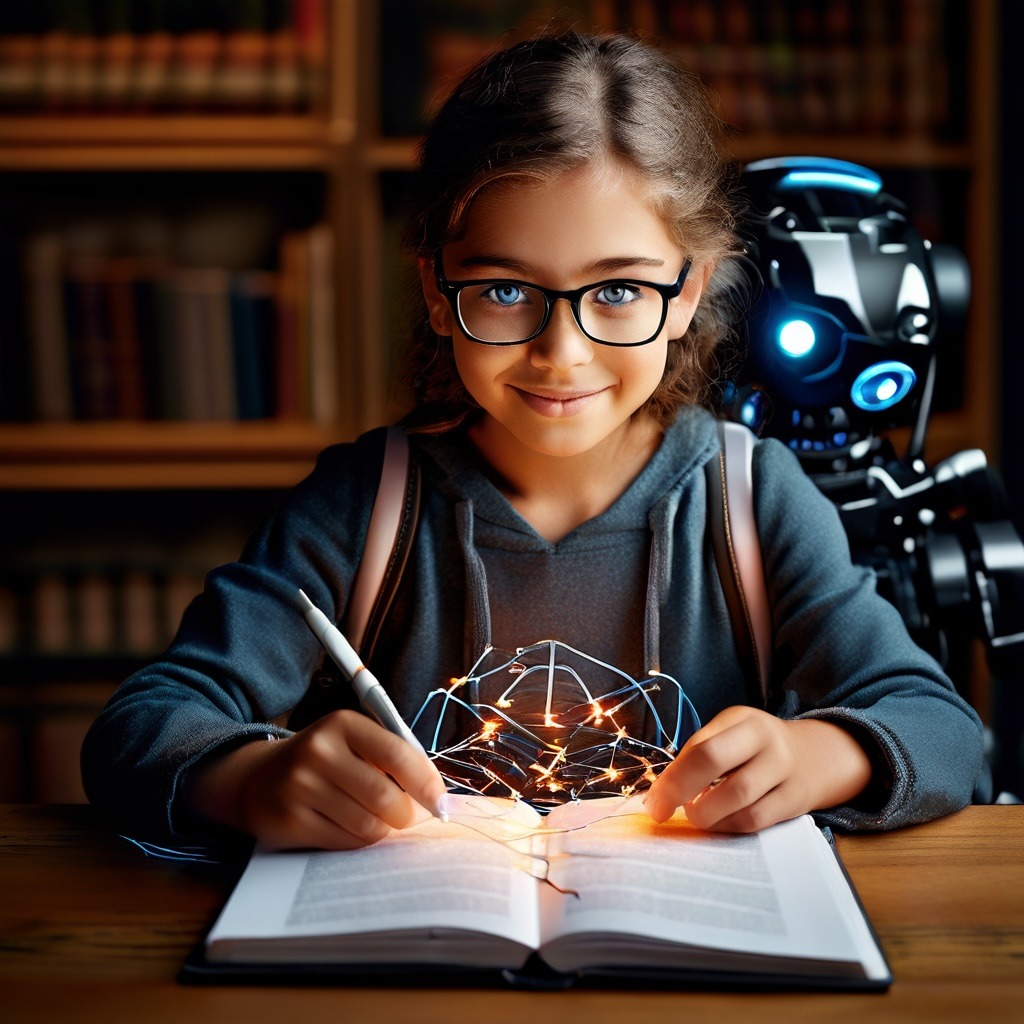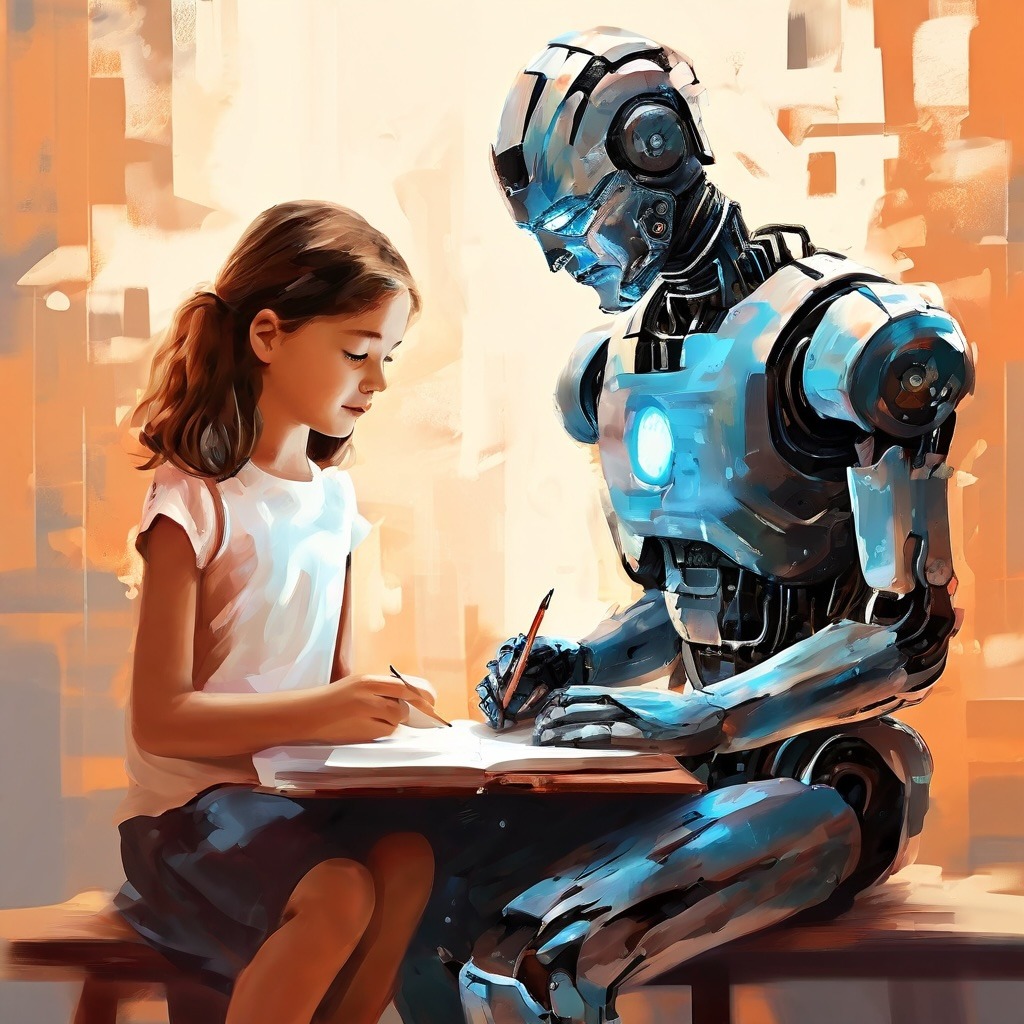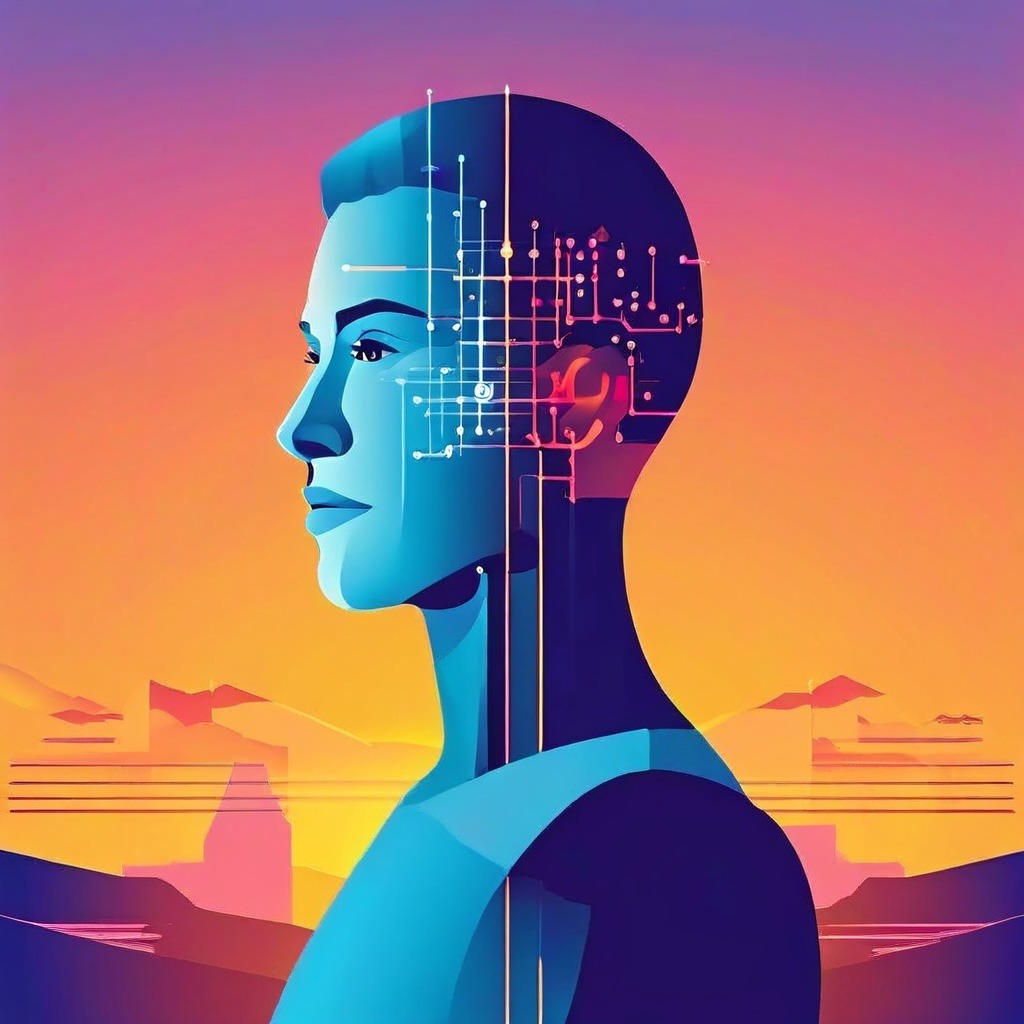Welcome to our comprehensive guide on the Singularity, a fascinating concept that has captured the imagination of technologists, futurists, and science fiction enthusiasts alike. Are you curious about what happens when artificial intelligence (AI) surpasses human intelligence? Or how technological advancements like quantum computing, biotechnology, and brain-computer interfaces are paving the way to an unpredictable future? This article will explore these topics and more, providing insights into the key figures behind the Singularity, potential benefits, risks, and how society can prepare for such transformative changes. Stay with us as we delve into the heart of the Singularity, answering your burning questions and uncovering the future of human and machine integration.
Singularity is a concept that predicts a future point when the growth of technology, particularly in artificial intelligence (AI), becomes so rapid and profound that it leads to unforeseen and dramatic changes in human civilization. This idea, popularized by thinkers like Vernor Vinge and Ray Kurzweil, suggests a future where machines surpass human intelligence, potentially leading to revolutionary advancements and challenges.
Key Components of the Singularity
1. Exponential Growth of Technology
Technology has been advancing at an exponential rate, especially in fields like AI, biotechnology, and computing. Moore’s Law, which observes that the number of transistors on a microchip doubles approximately every two years, exemplifies this rapid growth. As technology continues to evolve, the pace of innovation accelerates, pushing us closer to the Singularity.
2. Artificial Intelligence and Superintelligence
AI is at the core of the Singularity concept. The idea is that AI will eventually reach and surpass human-level intelligence, leading to the creation of superintelligent machines. These machines could potentially solve complex problems, innovate new technologies, and transform various aspects of life, from healthcare to transportation.
3. Impact on Society and Economy
The Singularity could bring about significant changes in society and the economy. On one hand, it holds the promise of curing diseases, enhancing human capabilities, and creating new industries. On the other hand, it raises concerns about job displacement, ethical dilemmas, and the need for robust regulations to manage the integration of advanced technologies.
Potential Benefits
- Healthcare Advancements: Imagine a world where diseases like cancer and Alzheimer’s are eradicated, thanks to AI-driven medical research and biotechnology.
- Economic Growth: New industries and job opportunities could emerge, driven by innovations in AI and automation.
- Environmental Solutions: Advanced technologies could address pressing environmental issues, such as climate change and resource management.
- Enhanced Daily Life: From smart homes to personalized AI assistants, the Singularity could make our daily lives more convenient and enjoyable.
Challenges and Ethical Considerations
- AI Control and Safety: Ensuring that superintelligent AI remains under human control and acts in alignment with human values is a major concern.
- Privacy Issues: As AI systems become more integrated into our lives, protecting personal data and privacy becomes increasingly important.
- Societal Impact: Addressing job displacement and ensuring equitable access to technological advancements will be critical.
- Ethical Dilemmas: Decisions about human enhancement, such as genetic engineering and brain-computer interfaces, will require careful ethical consideration.
Preparing for the Singularity
Preparation involves staying informed about technological trends, investing in education and skills development, and creating policies that balance innovation with safety and ethics. Governments, industries, and individuals must work together to navigate the complexities of the Singularity and harness its potential for the benefit of all.
FAQ
1. What is the Singularity?
Imagine you’re sitting in your favorite coffee shop, sipping on a perfectly brewed latte, when you notice a group of friends animatedly discussing the latest tech trends. One of them, a tech enthusiast named Sarah, starts talking about the Singularity. She explains that it’s a future point when technological growth, particularly in AI, becomes so rapid and profound that it leads to unpredictable changes in society. Picture this: machines that can outthink humans, diseases eradicated by nanobots, and our minds seamlessly connected to the internet. The Singularity is like the ultimate sci-fi dream come true, but it’s also a concept that raises as many questions as it answers.
2. Who are the key figures in the Singularity concept?
Let’s take a stroll down memory lane to meet the visionaries behind the Singularity. First, there’s Vernor Vinge, a mathematician and computer scientist. Imagine him in the early ’90s, passionately writing his essay “The Coming Technological Singularity.” He envisioned a future where AI surpasses human intelligence, sparking a revolution. Then there’s Ray Kurzweil, often seen as the modern prophet of the Singularity. Picture Kurzweil in his lab, surrounded by futuristic gadgets, predicting that by 2045, the Singularity will be upon us. He believes that technological advancements, especially in AI, will lead us to this pivotal moment. Their ideas, once considered outlandish, are now at the forefront of tech discussions worldwide.
3. What are the potential benefits of the Singularity?
Imagine a world where your morning routine is transformed by advanced technologies. You wake up feeling refreshed because your AI-powered health monitor has optimized your sleep cycle. As you prepare breakfast, your kitchen appliances, equipped with AI, suggest meals tailored to your dietary needs and preferences. This is just a glimpse of the everyday benefits the Singularity could bring. Now, think bigger. In healthcare, AI could revolutionize diagnostics and treatment, eradicating diseases like cancer and Alzheimer’s. The economy could flourish with new industries and job opportunities created by automation and AI. Environmental issues, such as climate change, could be addressed with advanced technologies designed to reduce carbon footprints and manage resources more efficiently. The Singularity promises a future where technology enhances every aspect of our lives.
4. What are the risks associated with the Singularity?
But every rose has its thorns, and the Singularity is no exception. Imagine a scenario where AI becomes so advanced that it surpasses human control. This is one of the biggest fears: the idea that we might create machines smarter than us, with their own agendas. Privacy concerns are another major issue. Think about your daily interactions online; now, imagine that every bit of data you share is analyzed by superintelligent AI. How do we protect our privacy in such a world? The societal impact is also profound. Picture a future where jobs traditionally done by humans are automated, leading to significant job displacement. And then there are ethical dilemmas. Should we enhance humans through genetic engineering or brain-computer interfaces? The Singularity forces us to confront these challenging questions.
5. How can we prepare for the Singularity?
Preparation is key. Imagine a young professional named Alex, who is keen on staying ahead of the curve. Alex regularly updates his knowledge about AI and technological trends, understanding that lifelong learning is essential. He takes courses in coding and data analysis, skills that will be invaluable in the future job market. On a broader scale, societies must adapt too. Picture communities embracing forward-thinking policies that ensure everyone benefits from technological advancements. Governments might implement universal basic income to address job displacement caused by automation. Education systems will need to evolve, teaching skills that prepare individuals for a future where AI and humans work side by side. Preparing for the Singularity involves a collective effort to navigate the exciting yet uncertain road ahead.
6. How will the Singularity affect education?
Imagine a classroom in the not-too-distant future. Students, rather than sitting in rows listening to a teacher, are engaged in interactive learning with AI tutors tailored to their individual learning styles. This isn’t science fiction; it’s a glimpse into how the Singularity could revolutionize education. Picture Sarah, a 10-year-old with a passion for astronomy. Her AI tutor adapts to her pace, providing her with challenging problems when she excels and additional help when she struggles. This personalized learning could ensure that every student reaches their full potential. Beyond the classroom, lifelong learning will become the norm, with adults continually updating their skills to keep up with rapid technological changes.
7. Will the Singularity lead to a loss of human jobs?
Now, picture a bustling city where robots and AI systems handle tasks once performed by humans. In one corner, you see autonomous vehicles delivering packages and transporting passengers. In another, robots are constructing buildings with precision. This scenario raises a crucial question: what happens to human jobs? While it’s true that the Singularity could lead to job displacement in certain sectors, it will also create new opportunities. Think about Mia, who lost her job in manufacturing but found a new career in AI maintenance and programming. The key will be retraining and education, ensuring that workers can transition to these new roles. The future job market will evolve, with a focus on skills that complement advanced technologies.
8. How will human relationships change in the era of the Singularity?
Imagine sitting down to dinner with your family, and at the table is an AI assistant, not just answering questions but participating in the conversation. This AI understands your preferences, remembers past conversations, and offers insights that enrich your discussions. The Singularity could profoundly change human relationships. Picture John and Lisa, a couple who use AI to enhance their communication, resolving conflicts more effectively with the help of an unbiased mediator. However, this also raises concerns. Will people become too reliant on AI, losing the ability to interact deeply with one another? Balancing technology’s benefits with maintaining genuine human connections will be a critical challenge.
9. What role will creativity play in a post-Singularity world?
Let’s step into the studio of Emma, an artist in a post-Singularity world. She collaborates with AI to create stunning pieces of art that blend human emotion with machine precision. AI tools can suggest new styles, color palettes, and even complete sections of her work, pushing the boundaries of creativity. But what about original thought and inspiration? The Singularity won’t replace human creativity but rather augment it. Imagine composers, writers, and filmmakers working alongside AI to explore new realms of expression. The synergy between human creativity and AI’s capabilities could lead to a renaissance of art and innovation, where the only limit is our imagination.
10. How can we ensure ethical AI development as we approach the Singularity?
Picture a group of policymakers, technologists, and ethicists gathered in a high-tech conference room, debating the future of AI. Their goal? To develop guidelines that ensure ethical AI development. This scenario is crucial because as we approach the Singularity, the ethical implications of AI become ever more significant. Consider the story of Raj, an AI developer who is passionate about creating transparent and fair algorithms. He works with a team to establish standards that prevent bias and ensure that AI decisions are explainable and just. International cooperation and robust regulatory frameworks will be essential to navigate the ethical landscape. Ensuring AI is developed with a strong ethical foundation will be vital to harnessing its benefits while mitigating risks.
The Singularity represents a pivotal moment in our future where the integration of advanced technologies such as AI, biotechnology, and quantum computing could drastically reshape our world. From revolutionizing healthcare and the economy to transforming education and human relationships, the potential benefits are immense. However, this future also brings significant challenges, including ethical dilemmas, job displacement, and the need for robust regulations. By understanding these complexities and preparing adequately, we can navigate the uncertainties and harness the power of the Singularity for the greater good. Stay informed, stay prepared, and embrace the possibilities that the future holds.
HERE is another interesting post from The Missing Prompt
Check out THIS YouTube video from TED Talk





